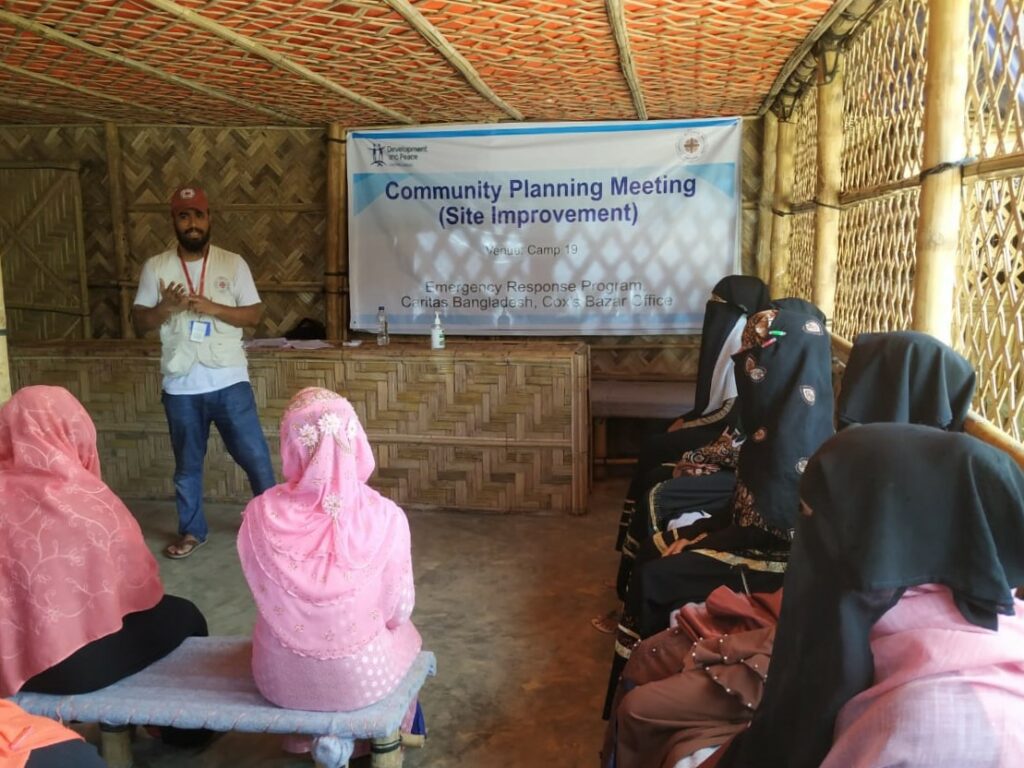By Dominique Godbout, Programs Officer, Humanitarian Assistance


It has now been four years since the beginning of the massive influx of Rohingya refugees from Burma (Myanmar) into Bangladesh. Four years that Caritas Bangladesh, through its Emergency Response Program, has been working tirelessly to respond to the critical needs of the Rohingya women, girls, boys and men who live in the refugee camps in Cox’s Bazar.
Since 2017, too, Development and Peace — Caritas Canada, with support from thousands of Canadians and Global Affairs Canada, has been helping Caritas Bangladesh provide dignified and safe shelters to families in congested and disaster-prone camps.
Canada’s Feminist International Assistance Policy drove our commitment to ensuring that the shelters meet the specific needs of those who spend the most time in them: women, adolescent girls and other vulnerable groups. This meant that shelters had to be made of durable materials; be well ventilated; and have safe cooking and bathing spaces, room partitions for increased privacy, and locks for safety.
Caritas Bangladesh’s gender-sensitive, community-led approach to shelter rehabilitation and construction has had meaningful impacts on the community, especially for women, girls and vulnerable groups. Female participants have gained the confidence to voice their needs and participate in making decisions about upgrades to their shelters. They have also become skilled, knowledgeable, and self-reliant with respect to shelter rehabilitation/construction. Their use of these new skills and capacities has also led to greater community cohesion and pride. Women also feel a greater sense of security and confidence in their shelters’ ability to withstand recurring extreme weather events. Caritas Bangladesh is helping Rohingya women develop shelter planning, construction and maintenance skills.


In the past year, fires, floods, cyclones and the COVID-19 pandemic have caused several setbacks in the delivery of the humanitarian response. This has had adverse impacts on the safety and well-being of the refugees, especially those from the most vulnerable households. These difficulties notwithstanding, Development and Peace remains committed to supporting Caritas Bangladesh’s sustained effort to secure the dignity of the Rohingya people and improve their prospects.

